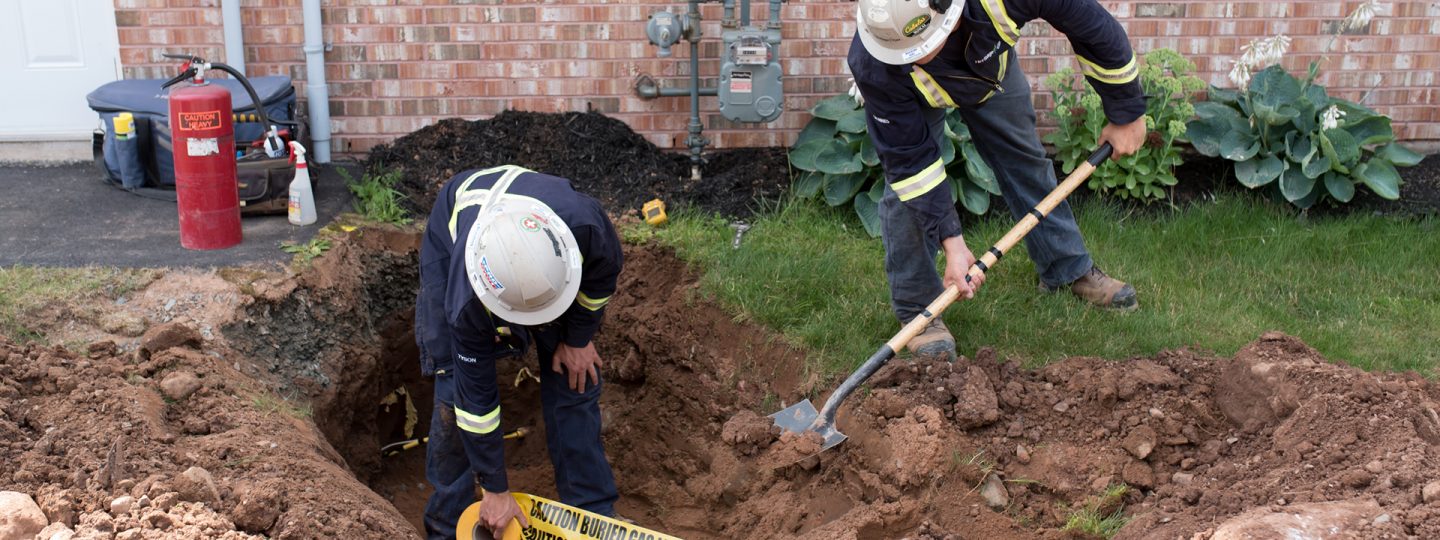Natural Gas pipelines are buried underground, so it’s easy to forget that natural gas is flowing all day, every day. It’s rare, but natural gas lines can be damaged because of failure to take a simple (but very important) safety measure before digging.
CLICK BEFORE YOU DIG and request a line locate to prevent damage, ensure public safety and avoid the inconvenience of outages.
Info-ExcAVATION Mobile App
Call (1-866-344-5463)
– Are you planning landscaping or construction?
– Installing a fence, porch or temporary structure?
– Building an addition on your home?
Visit Click Before You Dig and within 48 hours, we will locate any natural gas lines on and around your property for free. Thank you for helping Eastward Energy maintain safe communities.
Notes:
– Obtaining a line locate before excavation work is a legal requirement of Nova Scotia Occupational Health & Safety and Nova Scotia Pipeline Regulations.
– Damages to underground natural gas pipelines may result in personal injury, legal action, expensive repair costs and interruption of gas service.
– Line locates expire after 60 days as we are continually expanding our system.
– Line locates are only covered by the work area indicated on the locate.
Training:
Eastward Energy offers free training sessions for community groups and organizations such as realtors, utilities and industry associations, covering topics such as,
– Introduction to natural gas
– The benefits of natural gas
– Natural Gas Safety
– Natural gas infrastructure
– Emergency situations
If you would like more information on any of the items above, or would like to request a training session for your group, please contact Customer Care at 1-877-836-7427.

